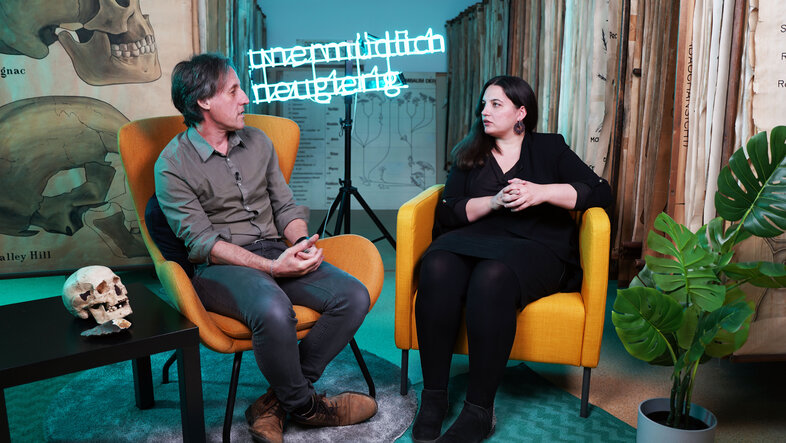Katerina Douka and Tom Higham about their "love for human origins"
Her "love for human origins" is what drives her to do research: Archaeologist Katerina Douka examines ancient DNA, hidden in tiny fragments of fossilised bones, to learn more about early human history. She says, turning to her research partner – and husband – Tom Higham, that "science and research is all about fun and being curious". We brought the two internationally renowned radiocarbon dating specialists, who recently left Oxford to join the University of Vienna, in front of the camera to find out: What motivates them and why they love human origins.
Why are we the only humans left?
50,000 years ago, we shared this planet with different human species, among them Neanderthals, Homo floresiensis, Homo luzonesis and the Denisovans. In her research, Katerina Douka and Tom Higham want to find out why they disappeared from Earth – Homo sapiens thus being the only remaining human species. "We now know that Homo sapiens has interbred with all these archaic species", says Douka und Higham adds, "Now the big question is: What happened exactly when they met?".
In the video, the two archaeologists explain how they are going to find the answer to this question and why there is a direct link between who we were 50,000 years ago and who we are today.
She specialises in radiocarbon dating, in particular the development of new protocols for decontaminating archaeological material, as well as the statistical interpretation of AMS results using Bayesian modelling.
His research areas are: Radiocarbon dating using accelerator mass spectrometry (AMS); Compound-specific radiocarbon sample preparation and pretreatment chemistry; The Middle to Upper Palaeolithic periods of Eurasia, Neanderthals, Denisovans and anatomically modern humans; Archaeological chronologies
